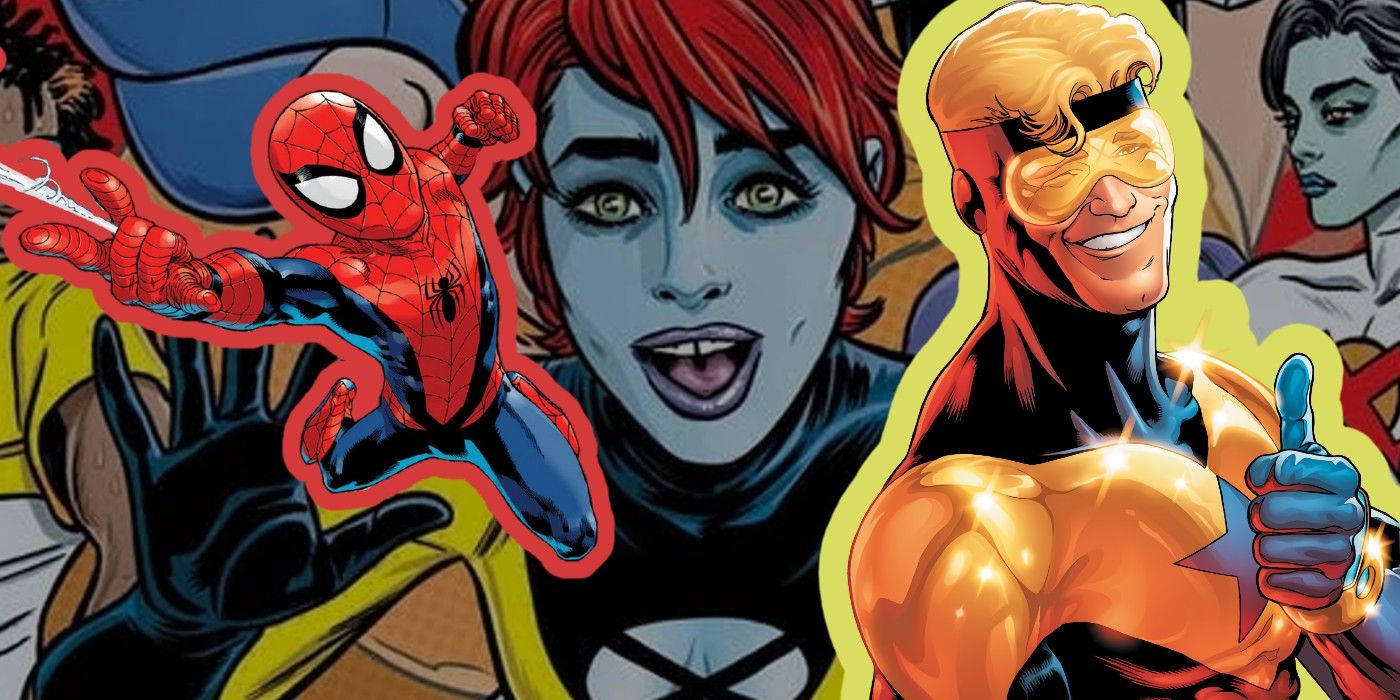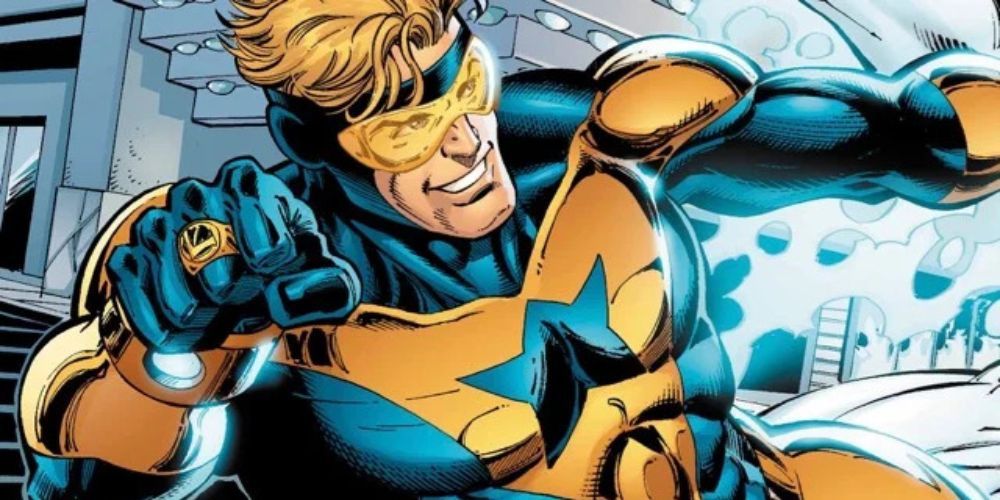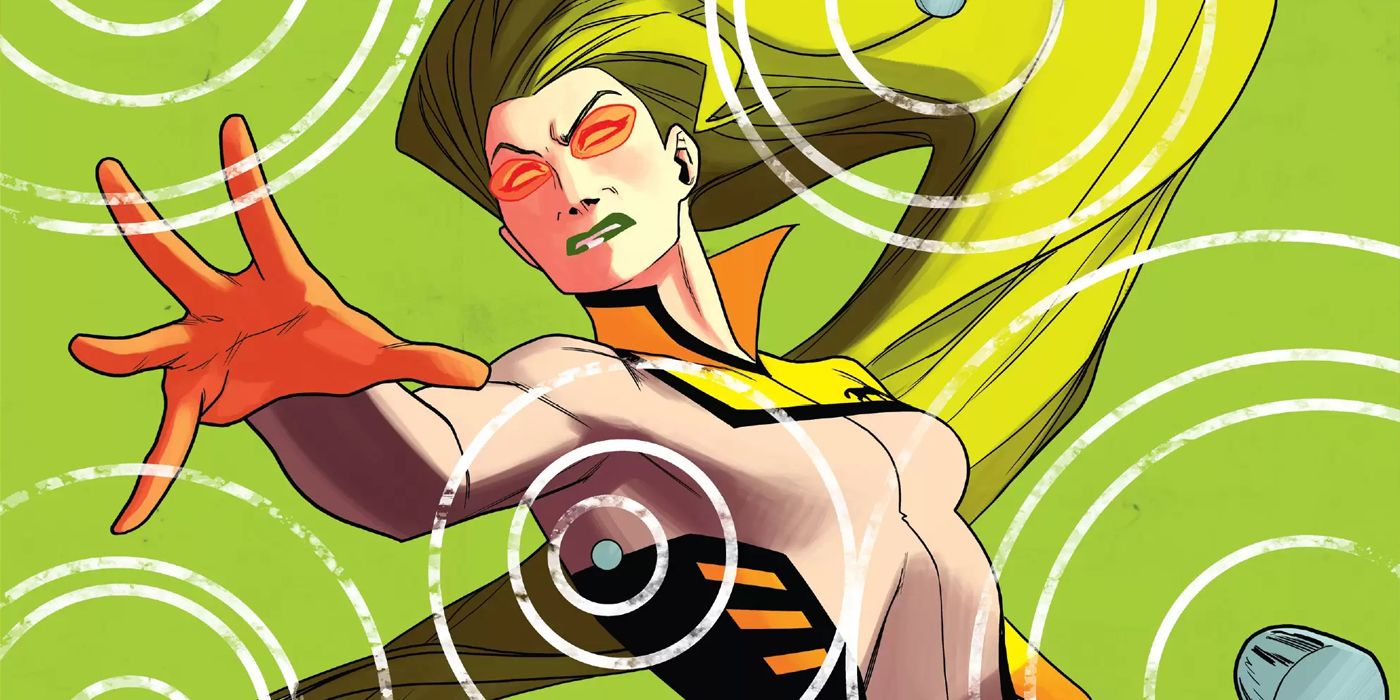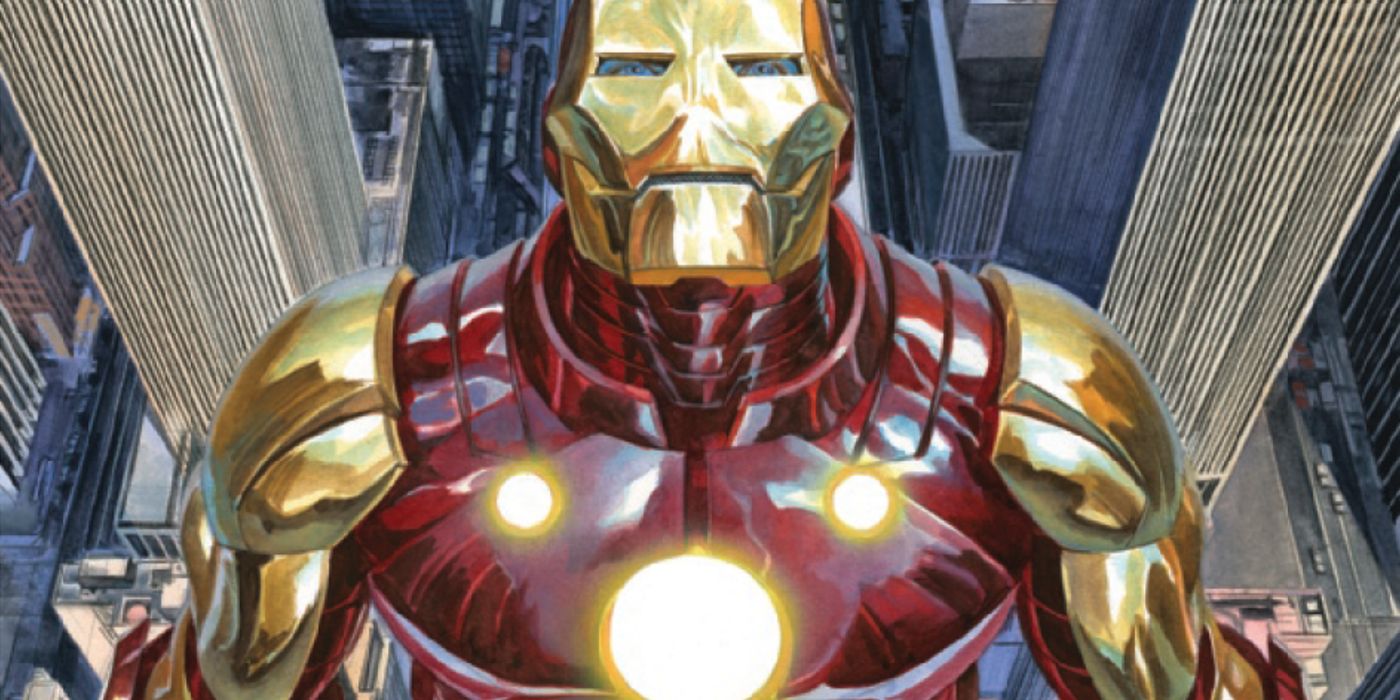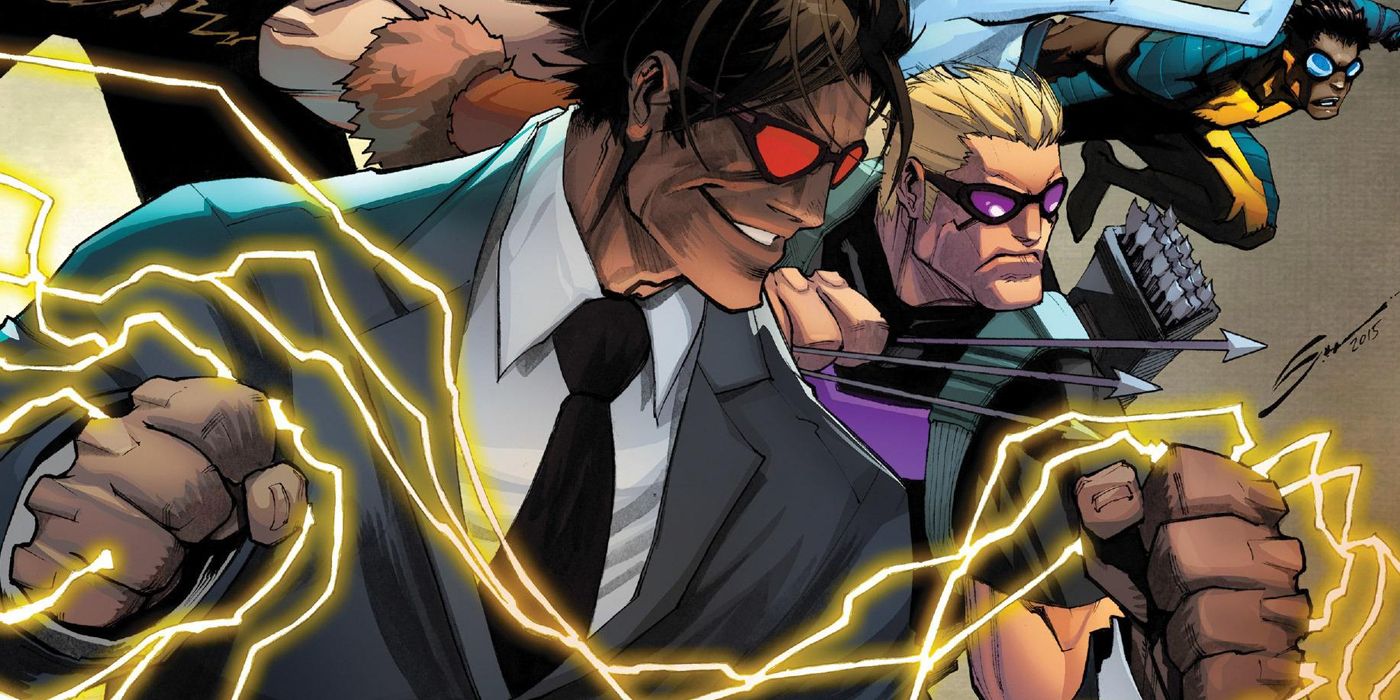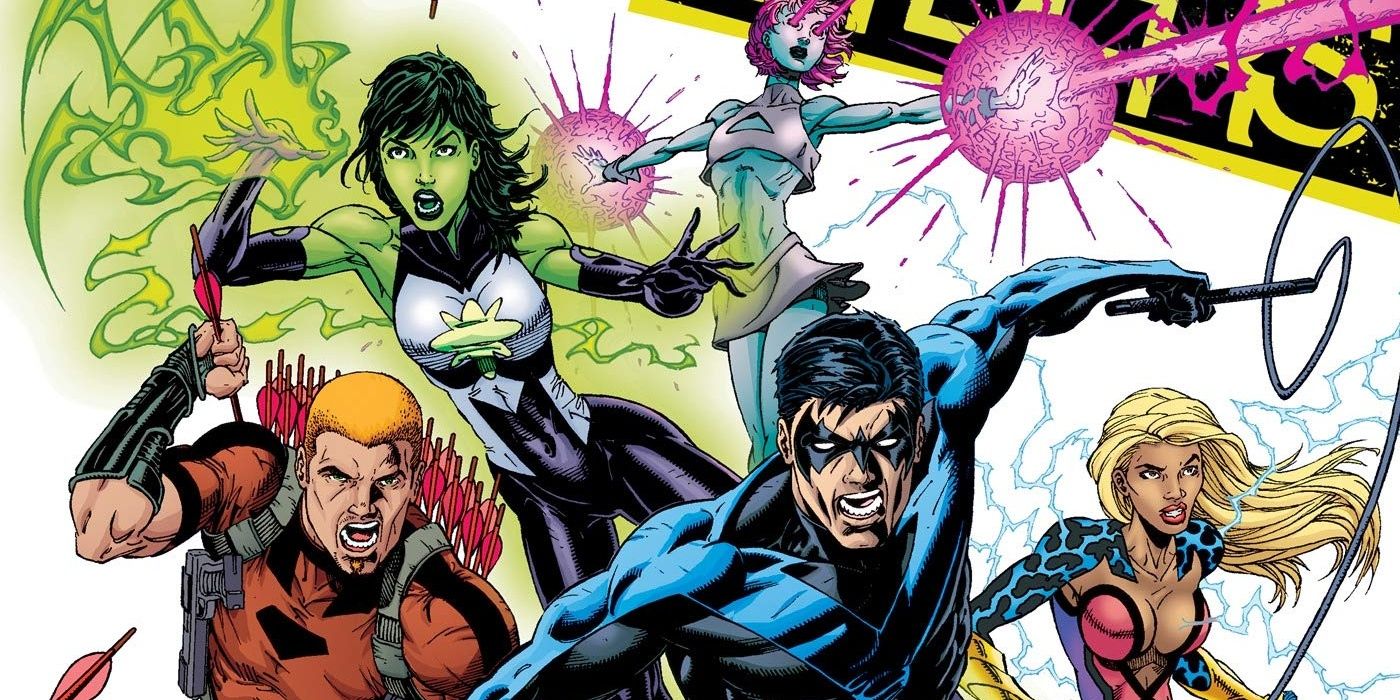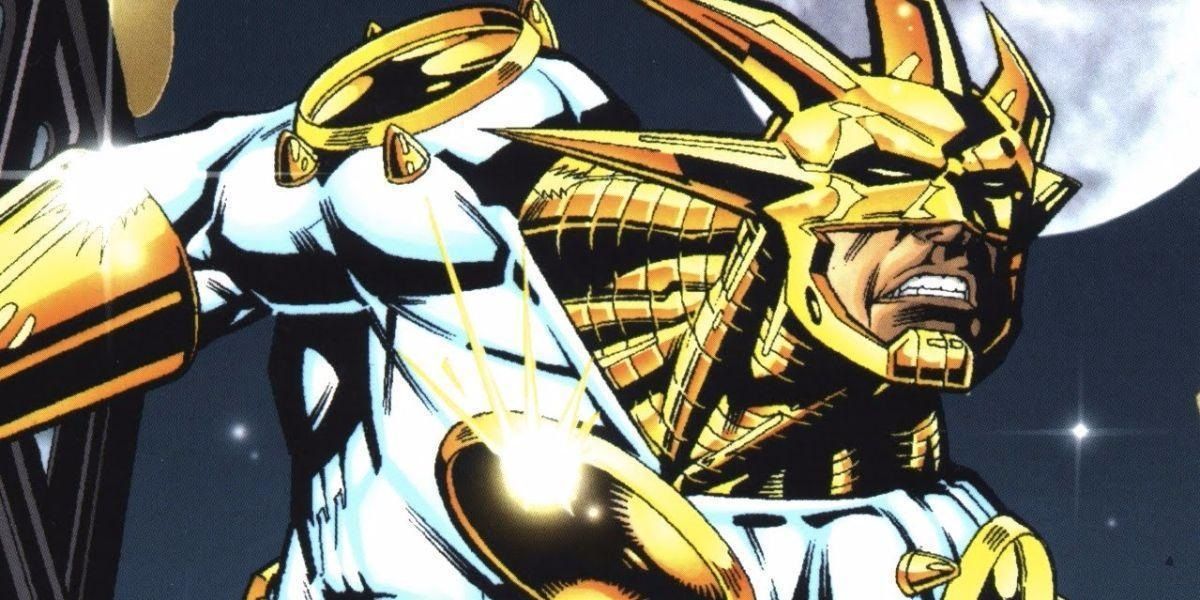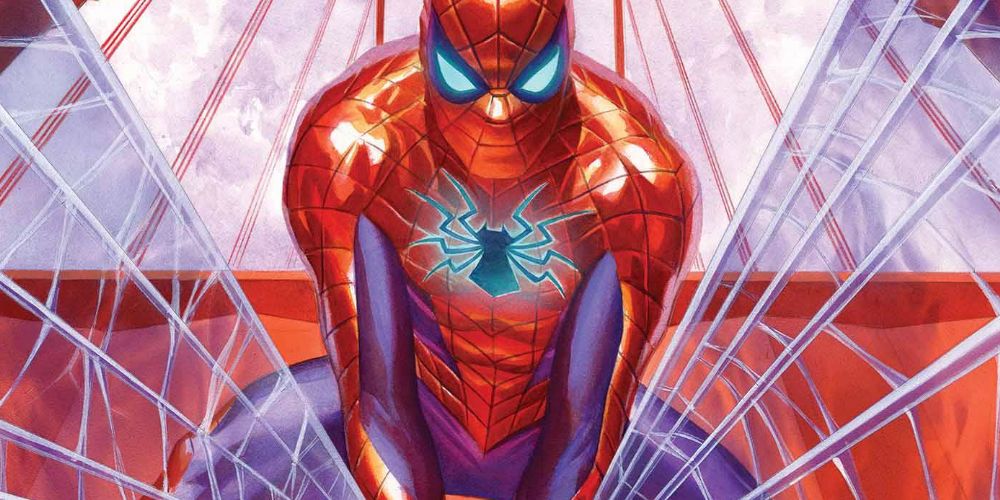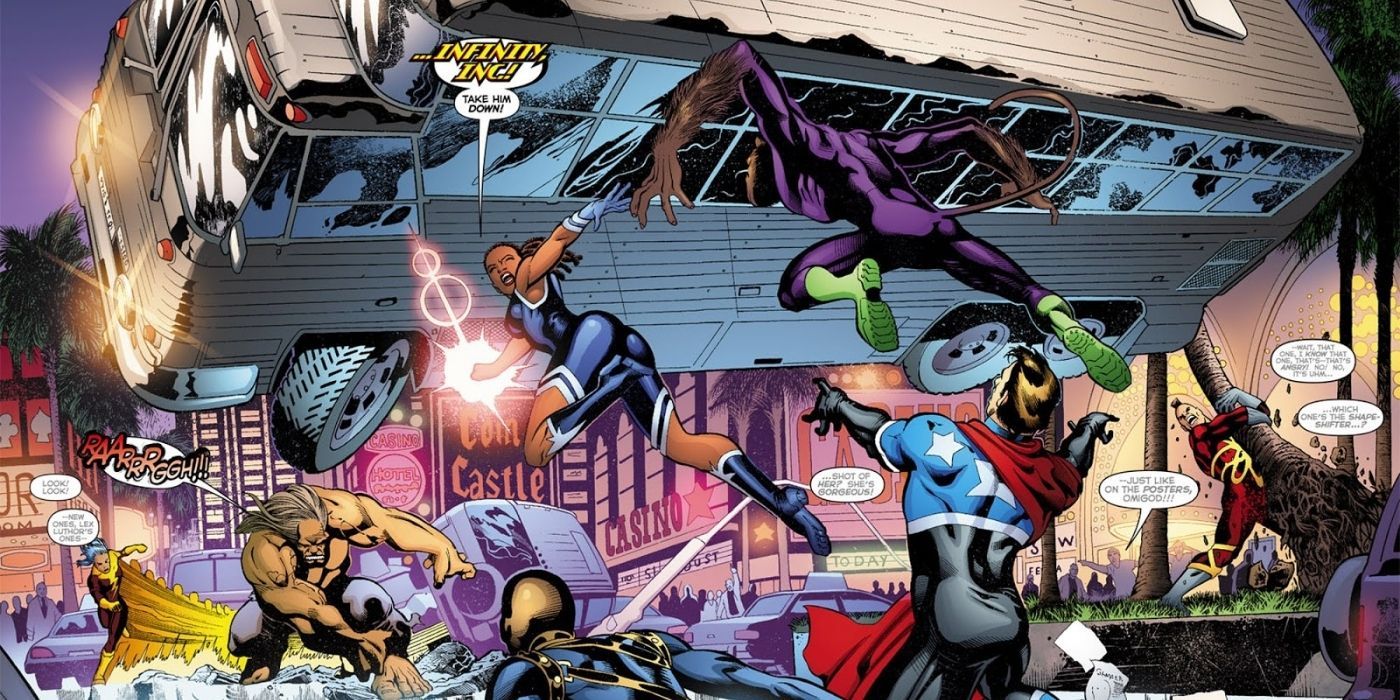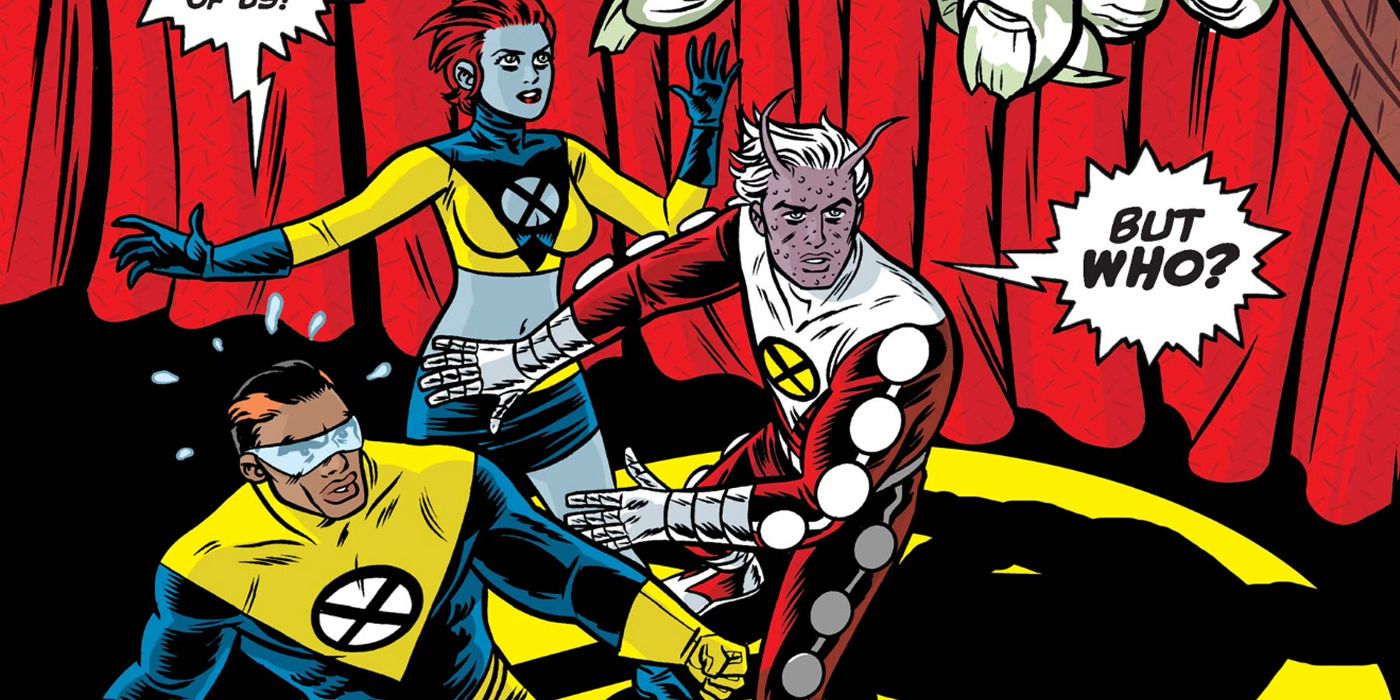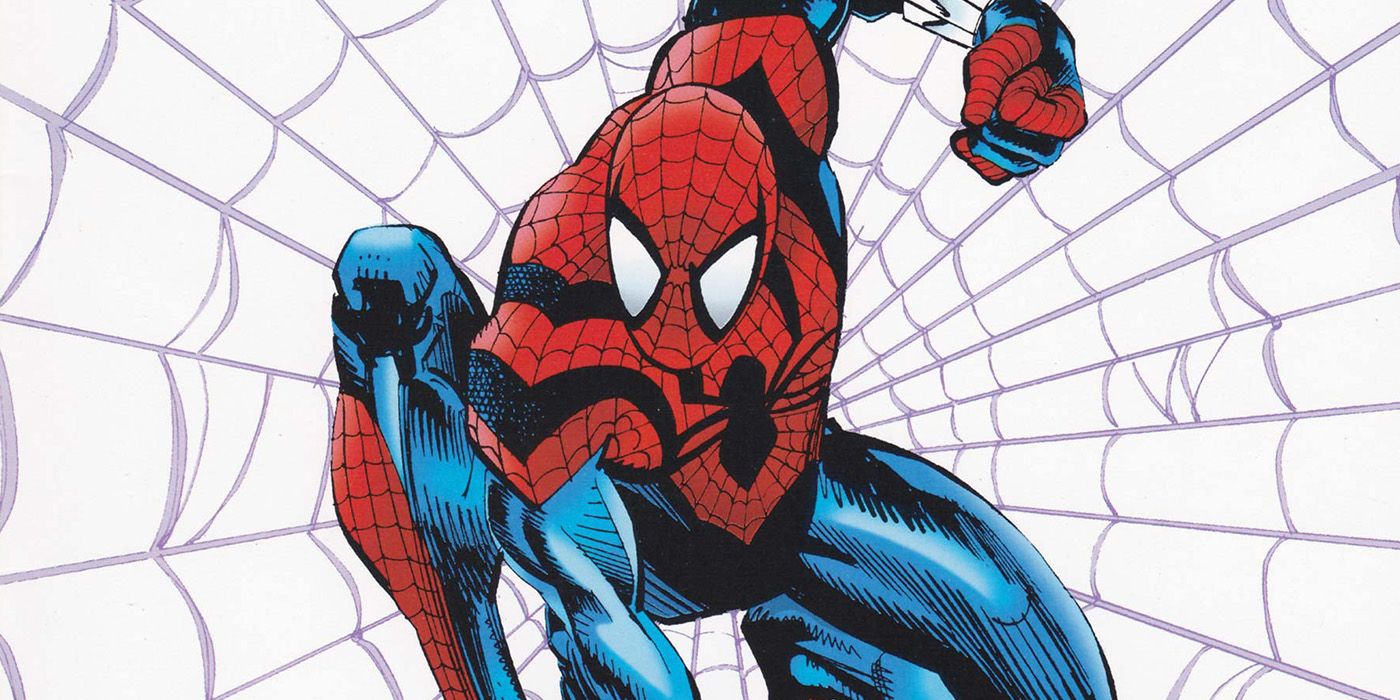When it comes to superheroes, most do it because they want to do the right thing. They've been gifted with powers and feel like if they don't help people, those powers would be going to waste. But being a superhero doesn't pay the rent, and everyone's not secretly rich.
There are heroes who have to find a way to use their powers while also paying the bills, and like most adults with unique skills and some modicum of celebrity, they turn to corporations for sponsorship. Of course, when corporations have access to people with incredible powers, they don't always stay on the up and up. Some heroes quickly find their moral compass being pushed by their corporate overlords and have to separate just to keep their souls.
10 Booster Gold Joined The Corporate Team The Conglomerate
Booster Gold originally came back to the past with the intention of becoming a superhero and making loads of cash. He joined the Justice League International for a time, but his ego and an increasing desire to be taken "seriously" caused him to walk away from the team. But it wasn't long before he found himself on another team, working with the Conglomerate.
A new super-team formed by Max Lord's ex-wife, the Conglomerate was invested in by multiple major companies within the DC Universe, including LexCorp, S.T.A.R. Labs, Stagg Industries, and American Steel. Booster remained on the team until it became clear they'd never be a "real" team with so many corporations over their head.
9 X-Factor Was Run By Serval Industries
X-Factor has had one of the weirdest histories of any X-Men team. Originally, they were a team of "mutant hunters" formed by the original X-Men who wanted to collect and train mutants. Then they were a government-run organization for a time before becoming X-Factor Investigations under the leadership of Jamie Madrox, the Multiple Man.
After Jamie retired, Serval Industries CEO Harrison Snow bought the brand from him to create his own team. This version of X-Factor was led by long-time X-Factor member Polaris, who teamed up with Gambit and Quicksilver to form their own team. This version of the team was short-lived, as the All-New X-Factor comic didn't last for long.
8 Iron Man Protected Stark Industries Property
Tony Stark introduced basically the very first corporate superhero. After building the Iron Man armor, Stark knew he couldn't go around letting people know he was the one behind the suit. Instead, he revealed that Iron Man was going to serve as his bodyguard and a protector of Stark Industries' private property.
Stark kept Iron Man's identity "hidden" but made him a high-ranking employee within the Stark Industries organization. Iron Man remained as Tony Stark's bodyguard for several years until the mid-2000s, when he revealed his secret identity not once but twice. These days, people are well aware of who is actually underneath the helmet.
7 The New Avengers Became The Heroes Of Avengers Idea Mechanics
When Sunspot took over the New Avengers, they were unlike any of the prior eras that had well-known heroes like Spider-Man and Wolverine. Instead, Roberto da Costa used his money to buy out the super-science terrorist organization Advanced Idea Mechanics, turning it into the superior Avengers Idea Mechanics.
With the backing of this new A.I.M.'s science wing, Sunspot and the Avengers fought enemies with science as much as their powers. Consisting of heroes like Wiccan, Hulkling, Squirrel Girl, and White Tiger, the team didn't last long, but they were quickly reformed as another Avengers team: the U.S.Avengers.
6 The Outsiders Were Funded By Optitron
The Outsiders were run by Batman for much of its existence, but years after Batman left the team, Roy Harper started the team up again after leaving the Titans. It didn't take long before Roy convinced Nightwing to lead the group though, and they took money from the mysterious Optitron, a multimedia company that owned global cable companies.
Optitron was responsible for funding everything the Outsiders relied on, from a base to transportation. Unlike most corporations, they didn't want anything from the Outsiders, claiming their actions were more about philanthropy and the importance of having a lesser-known superhero team out there doing good. As Nightwing discovered later though, the real reason Optitron didn't want anything is they were a shell corporation owned by his mentor, Bruce Wayne.
5 Aztek Was Funded By Lex Luthor
Aztek was one of the heroes added to the Justice League in the late '90s when the team decided they needed an expansion. A hero who relied on technology, Aztek emerged to fight a dangerous threat his people trained to battle for centuries.
While Aztek was meant to fight this mysterious threat, he relied upon the support of an organization named Q Corp. But the Q Corporation's financial backer was Lex Luthor, who wanted a superhero inside the Justice League. Though Lex got his wish, Aztek proved too noble to be the tool Lex wanted him to be.
4 Spider-Man Became Parker Industries' Bodyguard
When Peter Parker took his body back from Otto Octavius, he also had to take over the business Otto had begun running. As the head of Parker Industries, Peter decided to make it easier to work with his alter-ego Spider-Man.
Like Iron Man, Peter decided to make Spider-Man his personal bodyguard. The connection between Spider-Man and Peter Parker was already made considering he spent years taking pictures of Spider-Man, so people just bought into it. The story made it feel like Peter was finally living up to his potential, something Marvel usually won't let him do. It didn't take long before Parker Industries collapsed, however, and Peter no longer had any need to keep up the charade.
3 Infinity Inc.'s Name Was Bought By LexCorp
Infinity Inc. was originally the children of the Justice Society who'd been refused membership within the JSA. Once the JSA's importance faded following the Crisis on Infinite Earths, Infinity Inc. gradually disappeared as well. But with the series 52, Lex Luthor bought the rights to the Infinity Inc. name, choosing to use it for his own team of heroes.
This new version of Infinity Inc. was made up of people who were given powers thanks to his special Everyman project, which was meant to give any human superpowers. Luthor intended to have his own corporate-controlled superheroes, but it didn't take long before they rebelled against him.
2 X-Statix Was Run By Billionaire Venture Capitalist Spike Freeman
The successor to the X-Force in the early 2000s, X-Statix was a commentary on an increasingly celebrity-focused culture. A team full of barely functioning mutants who were assigned "heroic" missions, the team was assembled by a billionaire named Spike Freeman. Freeman's main reason for keeping the team around was finding ways to make money off them.
Freeman's schemes varied from the simple, like keeping the team's fame up through missions, to the complex, like creating an artificial civil war between two factions of the team for the sake of selling an X-Statix video game. The irresponsible ownership lead to the roster constantly shifting to new members as they took on new recruits.
1 Ben Reilly Was Run By The Beyond Corporation
Recently, Ben Reilly took over Peter's role as Spider-Man while Peter was out of action. During that time, Ben worked for the Beyond Corporation, a group that wanted its own privately-funded superhero. For the Beyond Corporation, that meant intentionally taking Peter Parker out of action, and even having Ben fight Miles Morales for the Spider-Man trademark.
The Beyond Corporation's machinations were eventually discovered by Ben, though he wasn't able to shut the group down without personal harm. The organization wiped many of his memories as Peter Parker, making him into a more amoral character. In the end, the Beyond Corporation was forced to abandon their plans with private superheroes...for now.

